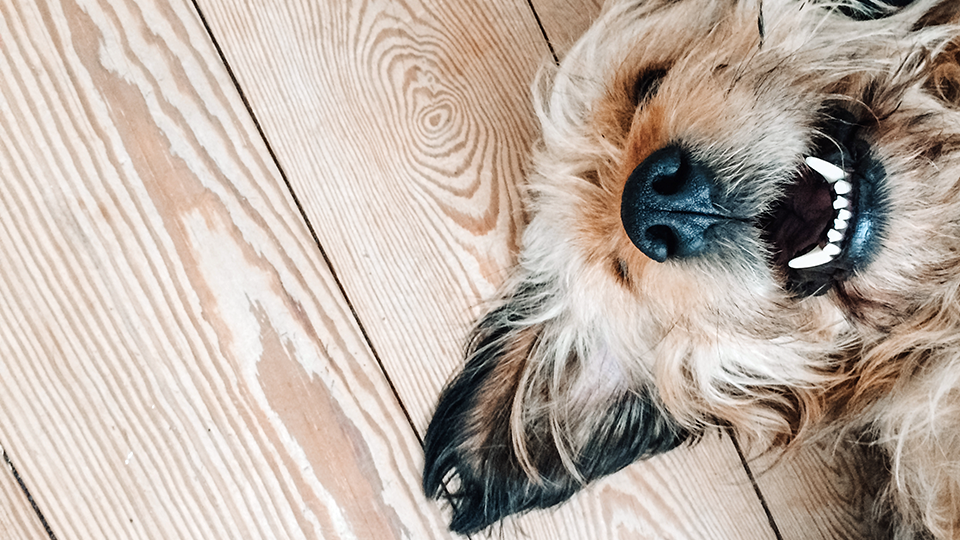Get Your Dog’s Dental Health Off To The Right Start
Dental disease in dogs can have serious health consequences, so it’s never too early to start your pet’s dental routine.

Caring for your dog’s teeth
The first year or two of your dog’s life is the best time to create good habits, and creating a regular dental routine is no exception.
Daily tooth brushing is the best way to remove plaque and tartar, two of the biggest causes of dental disease. As dogs get older, it becomes harder to introduce regular brushing, so it’s essential to get them used to it while they’re young. If it goes untreated, dental disease can lead to serious health issues, and may be associated with increased risk of heart disease and even jaw fractures following resorbed bone in severe cases.

Getting dogs started on a high-quality, balanced diet of dry food while limiting wet food avoids a build-up of food and bacteria along the gum line, which can lead to dental issues. Similarly, opting for training treats that are low in sugar and starch greatly reduces the risk of tooth decay.
Forming the habit of booking regular dental checks helps your vet identify early signs of dental problems, and gives you plenty of opportunities to ask for advice about ongoing dental care.
Brushing puppy teeth
Dogs usually develop their adult teeth at around six months, but you can start getting them used to having their mouth and teeth handled as soon as possible. Start by gently rubbing your finger along their gums while cuddling them to get them used to the sensation. Watch our short video on how to brush your dog's teeth.
Once they’re comfortable and receptive, apply a small amount of dog-friendly toothpaste (never use human toothpaste, which is toxic to dogs) to a soft rubber fingertip brush and gently clean around their teeth and gums. As your dog gets older, they’ll be used to having their teeth cleaned and you can move on to using a specially designed dog toothbrush several times a week.
See below for our essential puppy and kitten guide.
General dog dental care advice
While dental problems can be extremely painful, dogs often don’t show outward signs of pain making it tricky to spot. However, if left untreated it can significantly reduce their quality of life and may cause other serious health conditions.

Prevention is key, and taking a few small steps can help to improve your dog’s dental health. These include brushing their teeth with pet-friendly toothpaste, a small, soft toothbrush, and providing the right diet.
Expert dog dental care advice
Watch our top tips on how to care for your dog's teeth.Find your nearest practice

Our Healthcare Plans For Your Dog
With the Medivet Healthcare Plan, you can save up to £280 each year and that’s without discounts that the plan offers on top.
Learn more

